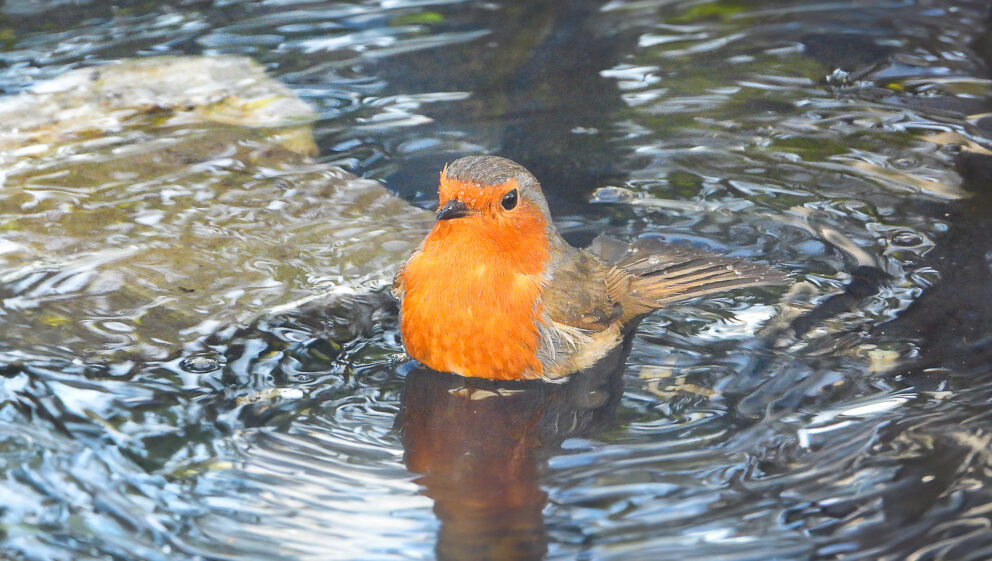Ban on the use of lead shot – finally!
Posted 10 Jul 2025

Posted on the 20th May 2025
With the recent 'unseasonably' warm spell, symptomatic of a changing climate, and elevated temperatures predicted to become more frequent and extreme, it's more crucial than ever to be prepared to help protect animals from the effects of heat and dry conditions.

Be it the dogs and cats under our care, our local wildlife or farmed animals who might be compromised as the mercury rises or natural water sources begin to dry up, then, armed with the right information, we can all make a difference!
Animals being able to stay cool and hydrated and being offered shade are key.
Dogs are vulnerable to elevated temperatures in cars and even more at risk when being walked on hot days. Cats are in danger of heatstroke, too, with flat-faced breeds of both dogs and cats more vulnerable still.
Birds need water not just to drink but to keep their feathers in good condition, which is essential for their well-being and survival.
Large numbers of hedgehogs come into wildlife rescue centres suffering from dehydration during the summer months. Leaving out fresh water can help save their lives in dry spells (along with many other vulnerable wildlife species). Dry weather also affects the availability of their food supply making it difficult for them, along with any dependent hoglets. A biodiverse, plant-rich garden (preferably chemical-free) acts as a larder, especially welcome as 75% of a hedgehog’s diet consists of invertebrates, including many insect species and slugs and snails. Earthworms are a hog’s favourite, so maintaining a dense, damp, uncut garden corner throughout the warmer months will also be beneficial.
Ponds provide the perfect haven for many animals to seek refuge from the heat, bathe or find a welcome drink. Totally dependent on the water in which they live, fish and other aquatic life need us to keep ponds topped up (NB If using tap water, leave to stand for 24hrs to dechlorinate). The presence of oxygenating weed and bordering plants, offering shade from direct sunshine, will help them all stay comfortable when conditions get tough.
Let’s not forget insects, including our dwindling pollinators; keeping our gardens watered helps keep essential plants viable, providing the insects with food and allowing them to complete their life cycles.
Farmed animals don’t escape the risks of heat, either. Dairy cows for example need to drink a lot of water, especially in the warmer months. Any farmed animals found to lack a clean water supply and/or access to shade (including animals being transported that are seen to be struggling, for example, on a hot day in a prolonged traffic jam), should be reported to the relevant authorities (more details under ‘Farmed Animals’ in link below).
To find out more about helping animals in hot weatherPosted 10 Jul 2025

Temperatures are rising and it’s time to get outdoors, enjoy the weather and tuck into some delicious vegan food! Thanks to an abundance of plant-based options now available, there’s an alfresco option for every tastebud...
Posted 09 Jul 2025
